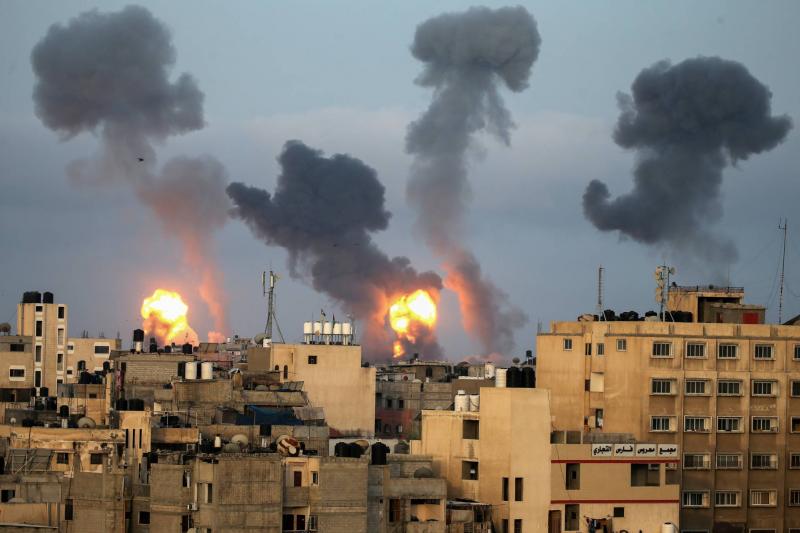The Israeli army revealed that its armed drones use unguided bombs that do not make noise or emit smoke during their descent, making it difficult for enemies to anticipate or evade them. The largest model of these drones can carry up to a ton of munitions. An Israeli general provided a detailed explanation in November about the use of air force and artillery systems in combat against nearby Palestinian targets and potential distant targets such as Iran or Sudan.
These drones are operated remotely to drop bombs or conduct reconnaissance before returning to their base. They differ from suicide drones that Iran claimed were used in an attack earlier in the week on a defensive weapons factory in Isfahan. Israel declined to comment on this attack.
A senior Israeli military officer told Reuters that their fleet of armed drones includes the Heron TP, which is the size of a passenger plane, produced by Israel Aerospace Industries, and smaller Hermes drones produced by Elbit Systems.
The officer noted that the former "is the heaviest drone the Israeli Defense Forces possess and can carry munitions weighing approximately a ton." Israeli manufacturing companies do not disclose the weaponry capabilities of drones, which sources in the industry describe as the Ministry of Defense's policy of secrecy. Unlike Hellfire missiles launched by American drones, such bombs will not contain propulsion systems that generate noise or smoke from burning fuel afterward.
The officer declined to provide further details on the munitions, merely stating that the drone is designed to "not be heard or seen" when it attacks. Other Israeli officials disclosed that examples of drone targets include irregular militants who move quickly and are detected and attacked before they can launch a missile.
This is supposed to require sufficient altitude so that the sound of the drone engines is not clearly audible on the ground. In wars occurring during winter, such as Israel's war in Gaza between 2008 and 2009, drones were required to fly below the clouds for targeting cameras to work, which meant they could be heard. The Royal United Services Institute explained in an online report that despite the deployment of advanced armed drones, the majority of Israeli drones are unarmed, as their primary function is to gather intelligence for ground forces.




